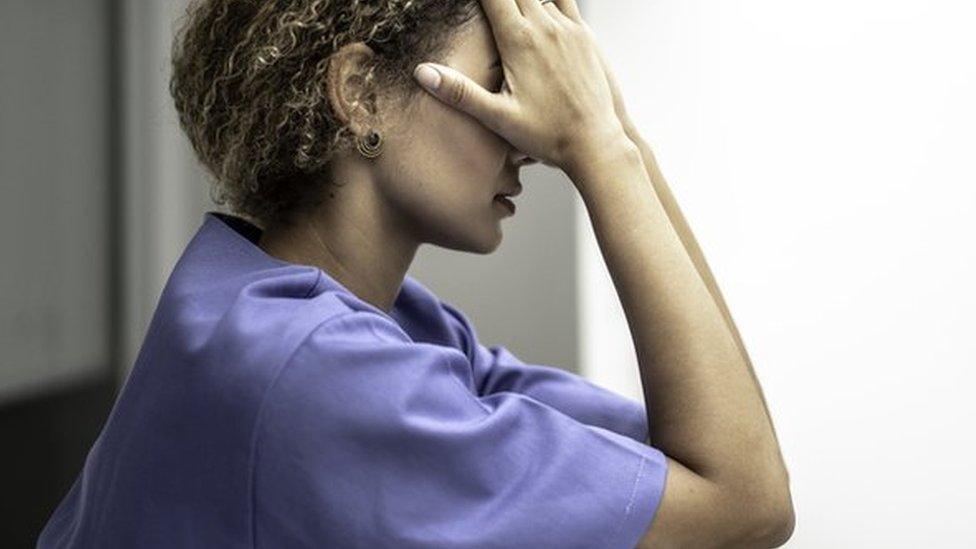NHS: Discharge guidance could see patients die - doctors
- Published
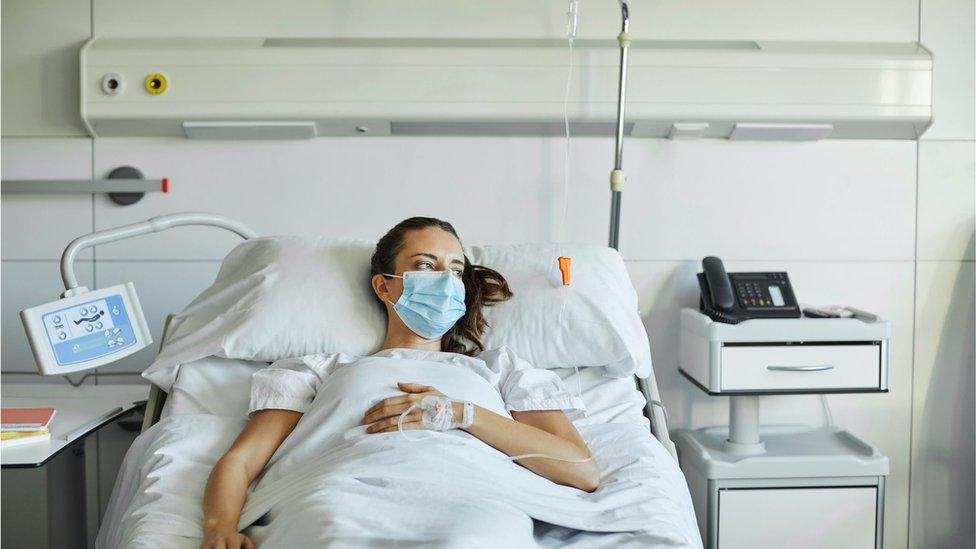
The British Medical Association has rejected Welsh government guidance on discharging people from hospital
Patients discharged from hospital without social care packages could die at home, doctors have warned.
They said Welsh government advice to do this showed a system at breaking point.
The British Medical Association (BMA) said it rejects the guidance to "change the risk threshold" for releasing people from hospital.
The Welsh government said discharging patients could help them get better "by reducing the risk of infection and muscle wastage".
Royal College of General Practitioners Wales chairwoman, Rowena Christmas, said the NHS was "unbelievably stretched".
She believed frail patients could be put at risk.
"A frail, elderly person coming home, who can't really safely get from their bed or their chair to the bathroom without risk of falling over, they're not going to be able to survive at home," Dr Christmas said.
"I completely understand we need more beds, but that feels like a bad move."
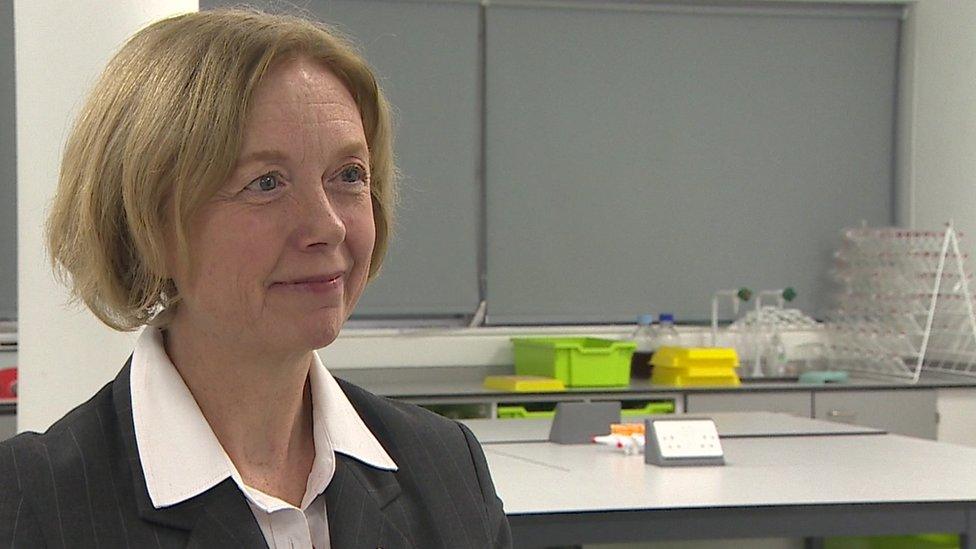
The BMA's Dr Iona Collins compared pressure on the NHS to a "slow motion train crash"
The BMA's Dr Iona Collins dubbed the pressures on the NHS a "slow motion train crash".
She said: "You can't pass the responsibility for a failure to deliver services over to the hands of the doctors.
"We have not created this situation. And it is not for us to put our own medical registrations on the line by making decisions we would not make because we don't believe they are safe."
Consultant gastroenterologist at Merthyr Tydfil's Prince Charles Hospital, Peter Neville, believed many doctors would ignore the guidance.
"If you have a bedbound patient who requires nurse care four times a day, and is entirely dependent on carers, there's no possibility of sending them home, because actually they will be in danger if they go home," Mr Neville said.
Doctors, he said, had an obligation to consider the risks.
Hywel Dda health board said it had about 300 patients who were medically well enough to leave - which equated to over a third of the number of beds in its hospitals.
Powys health board said it had 24.
Cwm Taf Morgannwg said it had 359 patients medically well enough to leave its hospitals.
At Cardiff and Vale health board there were 346.
Betsi Cadwaladr health board said 15% of patients were fit for discharge.
Gwent's Aneurin Bevan Health Board confirmed it had sent no patients home without care plans since the new since advice was issued.
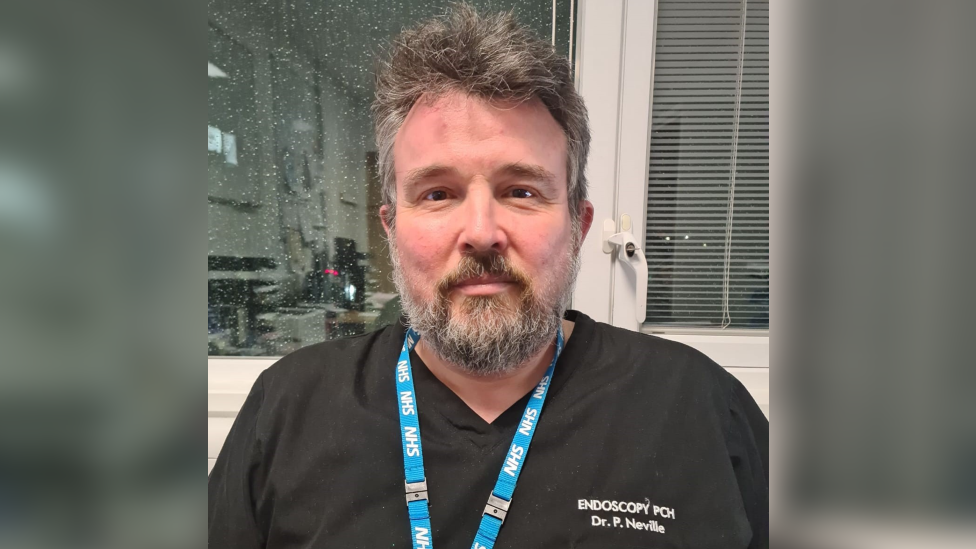
Consultant Dr Peter Neville believed doctors would ignore the advice
Social care is provided by councils, rather than the NHS.
Torfaen council's social care member David Daniels told the Local Democracy Reporting Service on Thursday there were 253 patients in its beds well enough to leave but unable to do so.
He said: "The concern is people may be discharged into the community and we won't know about it, and we can't then provide the care package to safeguard them."
Cardiff council said it had 41 people discharged from hospital into care in the week before Christmas, with 139 more patients still in hospital waiting.
Balance of risks
Part of the problem is a lack of social workers, the council said, so it has started to place patients before doing a full social work assessment.
"That is already starting to have an impact on the flow out of hospital," the council said.
Gwent regional partnership board, which includes Newport, Caerphilly, Blaenau Gwent, Torfaen and Monmouthshire councils, said it was seeing the "toughest ever winter for health and social care".
"People are rightly concerned about the availability of and delays to health and social care services," the board said.
To try to relieve the pressure, it asked family and neighbours to check in a vulnerable people and encourage them to get their flu and Covid vaccines.
NHS Wales chief executive, Judith Paget, said the decision to issue guidance to discharge without care packages was taken on a "balance of risks".
She acknowledged there were "huge dilemmas", but argued staff told her they needed to discharge more people from hospital to free beds.
"We need to make sure that we use the space we've got for the people who are the highest risk and in need for care, and support the people who are the lowest in risk to leave our hospitals," she said.
First Minister Mark Drakeford has denied people in Wales face an emergency care lottery.
He said because hospitals were full of "low-risk" patients, high-risk patients were "struggling to get through the front door".
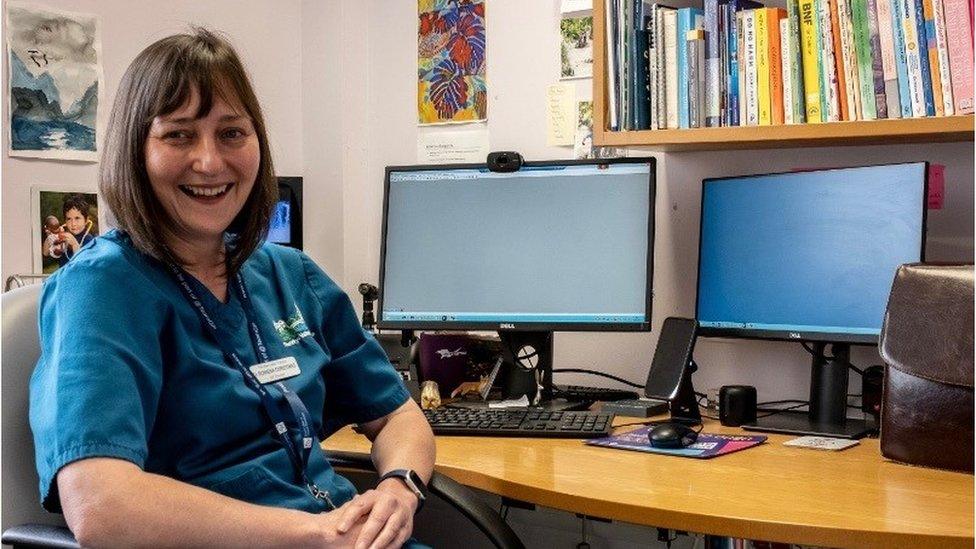
Dr Rowena Christmas said the NHS was "unbelievably stretched"
Mr Neville said hospital staff were exhausted and struggling to cope.
Sickness, he said, constantly needed to be covered which put "enormous" pressure on other staff.
"There simply aren't enough doctors," he said.
He dismissed the working environment as "poor".
"You put that all together, and you have quite a toxic mix that increases early retirement, increases decisions to go part-time, which, of course, then compromises the workforce even more," he said.
Mr Neville claimed "lots" had taken time off for exhaustion.
"We have had consultants in tears, junior doctors in tears," he said.
He believed the workforce did not feel the government was listening.
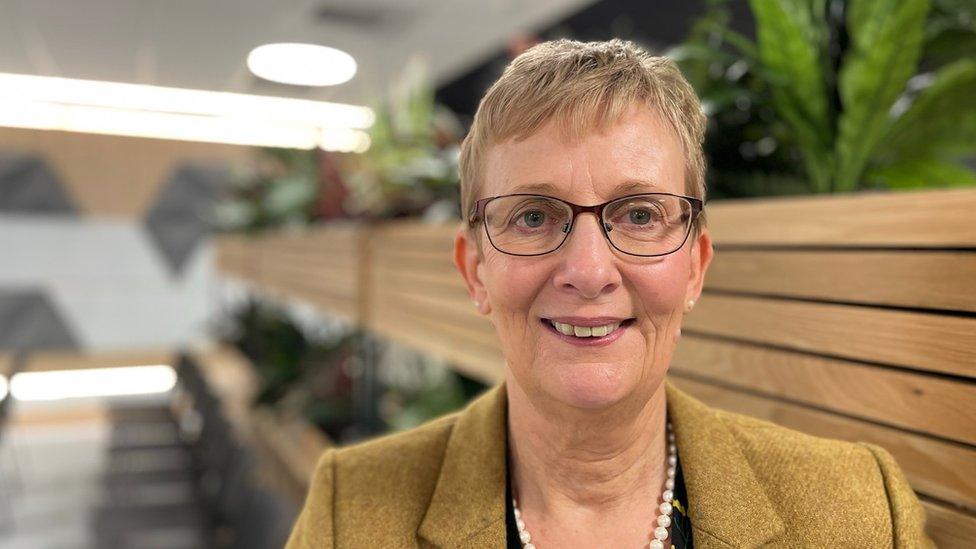
NHS Wales boss, Judith Paget, said guidance to discharge was made on a "balance of risks"
"People in high places are saying things like the NHS is coping," he said.
"You speak to anybody working on the front line in the NHS, and they will tell you something very different."
Dr Christmas is also worried for colleagues' mental health. They were suffering "moral distress" from worrying about patients, she said.
"We've come out of the pandemic now, and actually, things have just got progressively harder.
"And it's just not really a sustainable picture, what we're dealing with at the moment," said Dr Christmas.
"You can't keep seeing 50% more patients than you've got time for."
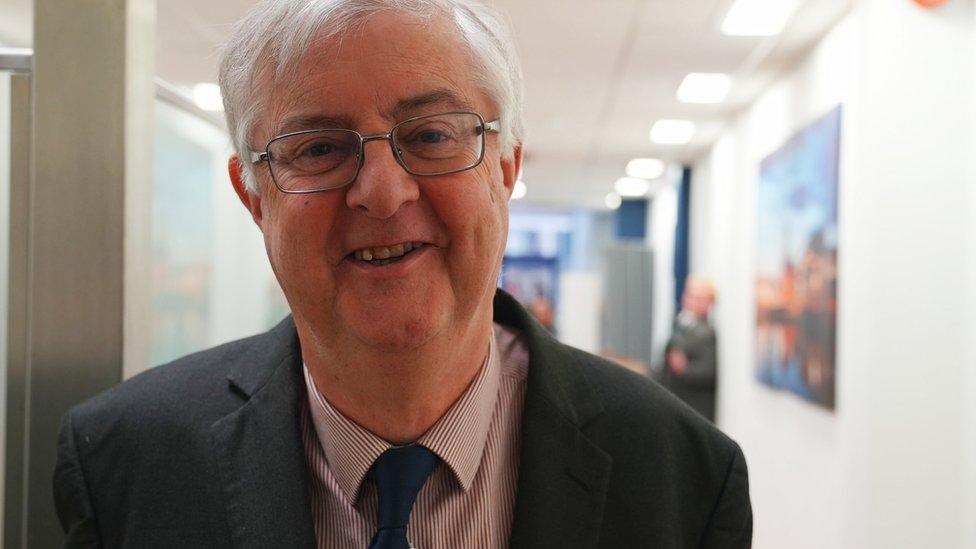
First Minister Mark Drakeford has denied the public faces an emergency care lottery
The Welsh Conservatives called the discharge policy "a new low".
"I am incredibly concerned that the first minister has chosen to advise that doctors discharge patients without a proper care package in place," said the party's health spokesman Russell George.
"Not only is this a danger to the lives of patients, but also will do little to solve the problems our NHS is under."
The Welsh government said "unprecedented demand" had led to it asking health boards to discharge people who do not need treatment so beds could be used by those who do.
It said the guidance could help patients get better "by reducing the risk of infection and muscle wastage", but would not lead to "frail and sick" people being discharged and patients would "only be discharged from hospital when it is medically appropriate and safe to do so".

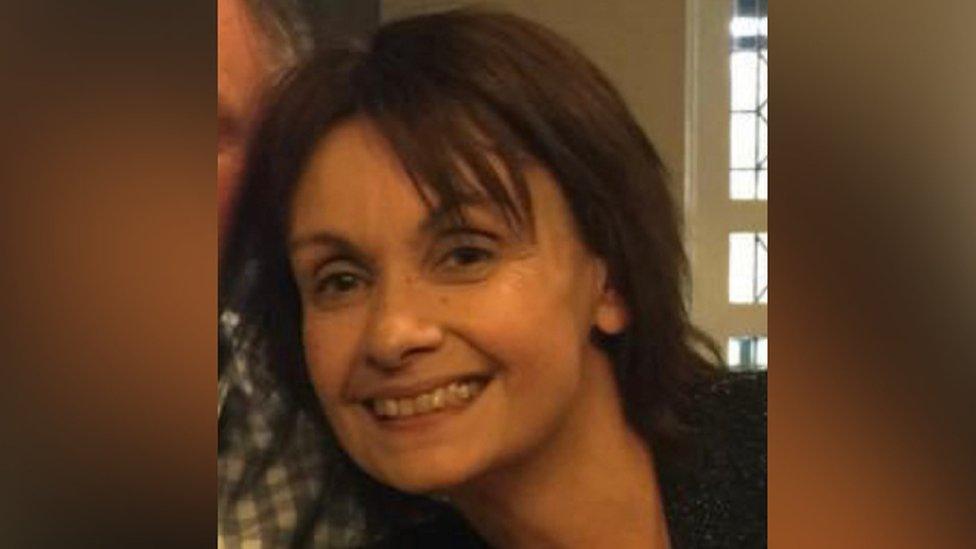
Fran Evans, pictured, said her mother-in-law was discharged when she was not fit to look after herself
A 100-year-old woman was sent home from hospital with no care plan in place, it has been claimed.
Fran Evans said her mother-in-law was discharged from Bridgend's Princess of Wales hospital when she was not fit to look after herself.
She branded the social care system "broken".
Ms Evans, from Bridgend, said there had been two occasions where she had been released from hospital.
"The first time she was discharged was just before a bank holiday and it felt like she was being pushed out for the bank holiday, it felt very rushed," she said.
"She wasn't ready, she had nothing prepared at home, she lives on her own, we later found out she had a collapsed lung, which was evident on the X-ray done in hospital but nothing was done about that."
The second time was a few months later.
'Broken system'
Ms Evans said: "She was in hospital for about three weeks, she's very proud and of the generation where she doesn't want to be a fuss to anybody.
"She was telling them anything she could to get out of there.
"When they were saying, 'Do you do your own cooking, shopping and cleaning?' She would just say 'Yes'.
"Just to get out and not be a strain on the NHS. But the reality is she can't do most of things."
Fran said she cares for her mother-in-law at home.
"I don't blame nurses, I don't blame the NHS, I don't blame doctors, I don't blame anybody on a ground level position, because they are doing what they can to prop up a broken system," she said.
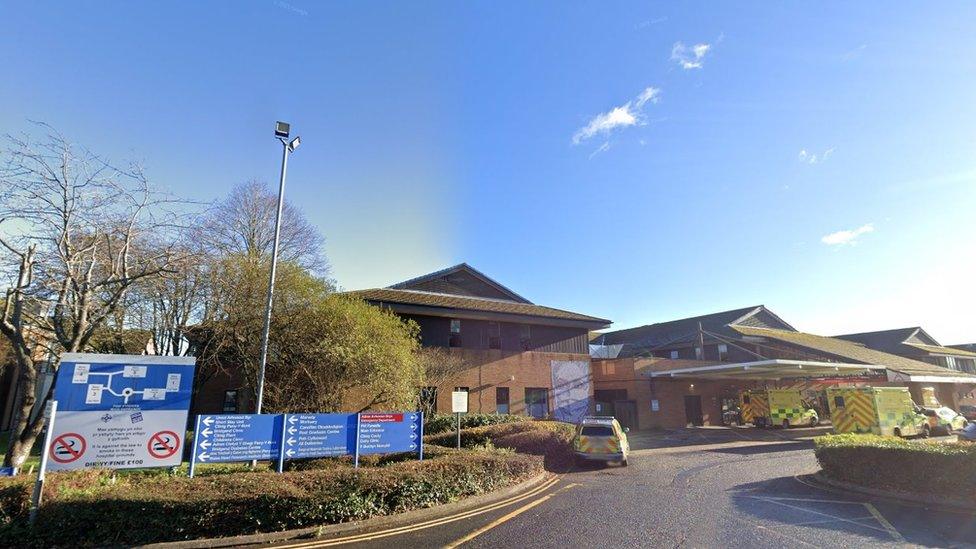
Fran Evans said her mother-in-law was discharged from Bridgend's Princess of Wales hospital
Ms Evans said she struggled to get social care for her mother-in-law when she left hospital.
"Because she has told them she can do everything, they say there is nothing we can do," she said.
She said social services have since said they will send someone to the house.
"But we can't guarantee that's going to happen or when that will happen," she said.
"The whole system is completely broken, and I honestly don't think chucking money at it is going to work, I think it's too broken for that."
Cwm Taf Morgannwg health board said: "We are extremely sorry to any of our patients who have not had a good experience at Cwm Taf Morgannwg University Health Board."
It said it was in touch with the family and that as a complaint had been made it would "not be appropriate" comment further.
Bridgend Council have been approached for comment.
- Published22 December 2022
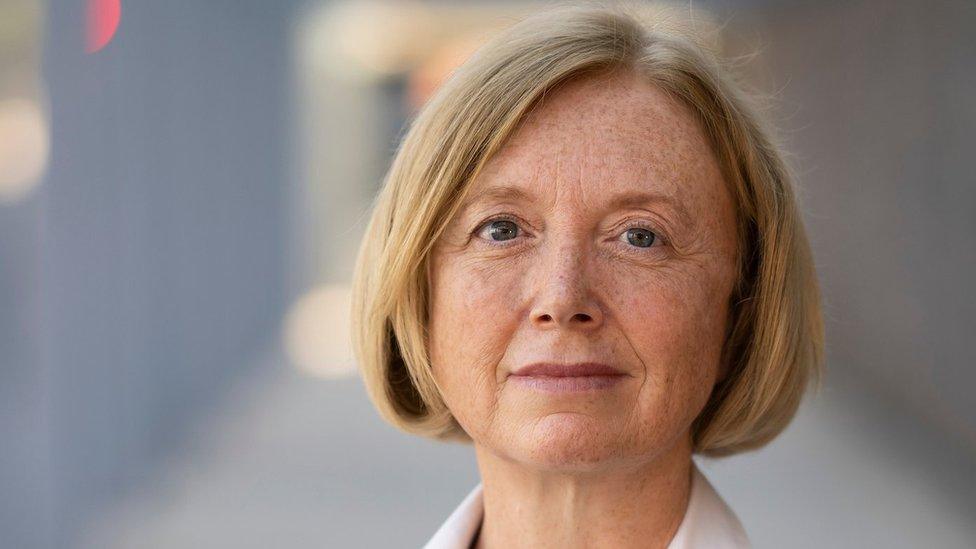
- Published29 September 2022
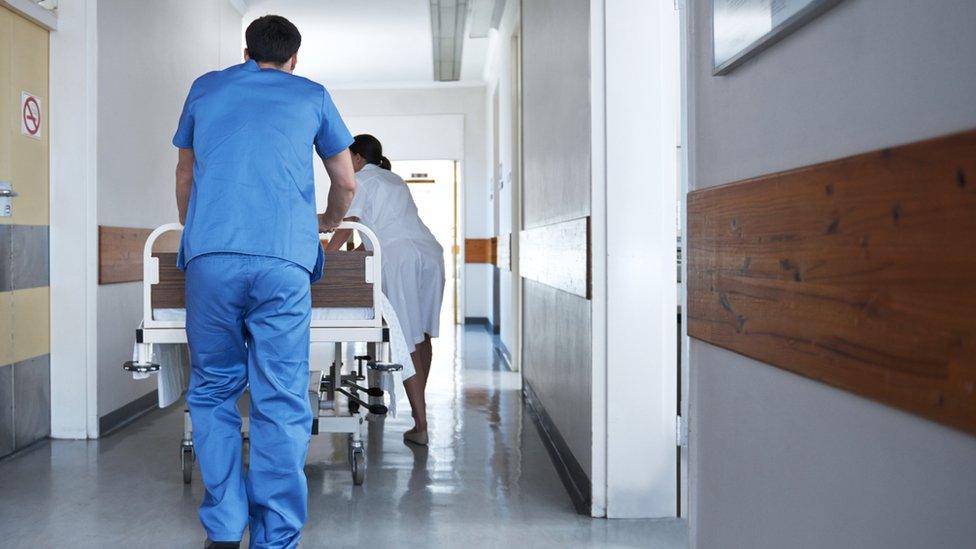
- Published6 June 2022
